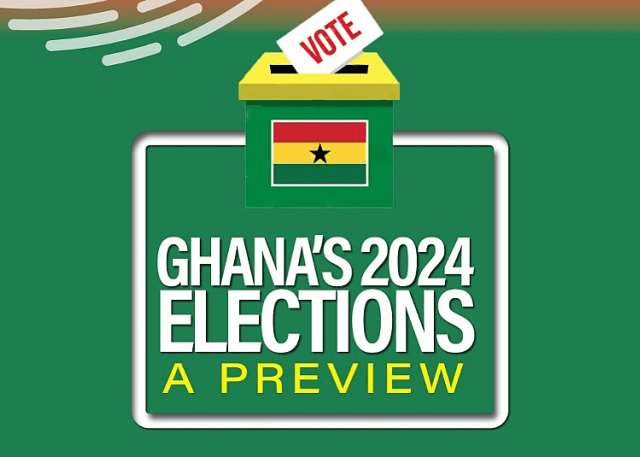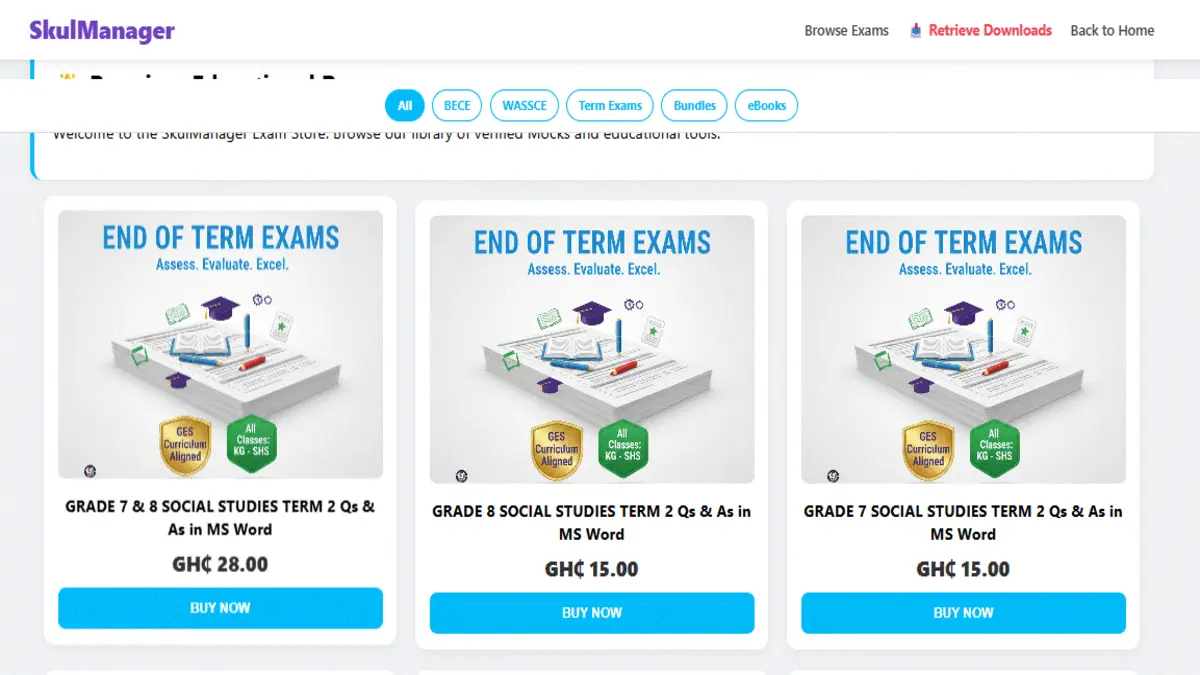Ghana and Ghanaians will be going to the ballot and not the bullet to vote and elect nationa leaders on 7th December. Nationa elections in Ghana are held every four years to elect a president and members of parliament to lead the economic and social development of the nation. At the end of the election, the nation is expected to remain stable and peaceful to ensure the continuity of political stability, which is essential for achieving the country’s economic and social goals.
What Is Happening on December 7, 2024, in Ghana?
On December 7, 2024, Ghana will hold its presidential and parliamentary elections. This event is a significant democratic process that usually draws national and international attention to the West African country.
Ghana has been described as one of Africa’s best democracies, irrespective of the internal challenges democracy and the associated electoral processes face. Let us take a look at the detailed election events that unfold in Ghana every four years to get ourselves prepared for the up coming elections.
Who Are the Main Presidential Candidates in the 2024 Election?
While Ghana is a multiparty democracy-practicing country, two main political parties have dominated and ruled the nation since 1992, and this is not expected to change during the 2024 general election. The contest has always been keen between the rulling New Patriotic Party (NPP) and the National Democratic Congress (NPP).
For the 2024 election, either the NDC or the NPP is expected to win the election, although there are 13 candidates on the presidential ballot paper for election 2024.
Ghana’s presidents and their political parties since the Fourth Republic began in 1992:
| President | Party | Term(s) in Office |
|---|---|---|
| Jerry John Rawlings. | National Democratic Congress (NDC) | 1993-2001 |
| John Agyekum Kufuor | New Patriotic Party (NPP) | 2001–2009 |
| John Evans Atta Mills | National Democratic Congress (NDC) | 2009–2012 |
| John Dramani Mahama | National Democratic Congress (NDC) | 2012–2017 |
| Nana Addo Dankwa Akufo-Addo | New Patriotic Party (NPP) | 2017–PPresent |
From the above table, the presidents elected in Ghana’s Fourth Republic, starting in 1992, when the current democratic era began, have been between the NDC and the NPP. The main parties have alternated in power, with the National Democratic Congress (NDC) and the New Patriotic Party (NPP) being the two dominant political parties. Each party has served a total of 8 years before being voted out of power. Based on the above table and Ghana’s election trends, we expect the NDC to secure power on December 7th, 2024.
What Are the Key Issues in the 2024 Ghana Election?
While the NDC’s John Dramani Mahama is promoting economic recovery, jobs through the 24-hour economy, and the youth apprenticeship program, among others, the NPP’s Dr. Bawumia is promising to use Ghana’s current digitalization agenda to further propel the nation into a digital economy, jobs, and education, among other things.
The NDC has promised to tackle corruption and suspected corrupt individuals under the current government. It has accused the Nana Add-Buwmia government of mismanaging the Ghanaian economy and causing hardship for the masses.
The NPP, on the other hand, continues to call on the electorates not to vote for the NDC, who are not better managers of the economy, and that its candidate, Dr. Bawumia, is Ghana’s best bet for the next government.
Polls by reknowned research institutions like Afobarometer have indicated that 85% of Ghanaians want the Free SHS to be maintained. However, Ghana has called for the abolishment of the infamous levy (Elevy), with 79% of respondents favoring its discontinuation.
According to the report, 41% of Ghanaians want an urgent solution to widespread unemployment in the country.
Again, the majority of Ghanaians expressed dissatisfaction with the current direction of the country, with fewer than half—45%—expected economic conditions to improve in the next year.
These issues are critical and will impact the choices of voters come December 7th, 2024.
How Does the Voting Process Work in Ghana?
Election day is a special day in Ghana, and to ensure the rules of the election are obeyed, all election campaigns are by law expected to end on the midnight before 7th December in an election year.
On the election day, electoral officers assigned to each polling station are to pick up their electoral materials from a designated location and transport them to the various polling stations.
The representatives of the various political parties are expected to be present at the various polling stations to observe the voting process, raise legitimate objectives, etc., and report to their parties before, during, and after the election.
Once the officers (EC and parties) are present at the polling centre with security officers, they set up the election materials and processes.
The election starts at 7 a.m. across the country on December 7th; however, special voting is done ahead of the election by officers of the law, EC officials, and party representatives, among others, days ahead of the main election. These votes cast are not counted until the main election is over.
On election day, registered Ghanaians visit their polling centres with their voter cards to go through the processes, such as getting their names checked and confirmed in the voter register, getting verified electronically, getting marked with indelible ink, receiving presidential ballot paper to vote, and returning for the parliamentary ballot and vote. Leaving the polling centre and then coming back in the evening after 5 pm to witness the sorting, counting, and declaration of results from each of their respective polling centres.
While the votes cast for parliament are collated at the contintuency collation centre and declared by the returning officers, the presidential votes are collated and delegated by the electoral commisioner, who is the sole returning officer of the presidential election. He or she announces the electoral results for the presidential results after the election in a press conference.
The party that wins the presidential election forms the next government on 7th January. Excitement, jubilation, singing, and dancing take over the streets of Accra and the entire nation after. This is done by the winning party’s supporters late in the night. The elections continue even through the year and reach their final pitch on 7th January, when the new parliament and president elect are sworn in by the Chief Justices of the Supreme Court.
What Safety and Security Measures Are in Place for the Election?
Ghana does not leave security issues out of the election, knowing the importance of peace and the role security forces play to emtain peace, especially at flash points where electoral violence has occurred in the past.
The government deployed nearly 85% of its security officers from the police, army, principals, and immigration, among others, to provide the needed security and protection for electoral officers, the election processes, and the citizens at large.
Persons arrested for election-related violence and suspected crimes are sent to the police station for the right directives and actions, while security officials are expected to maintain law and order at all times during the election processes.
READ: Election 2024: Is Free SHS alone worth your vote for NPP and Dr. Bawumia?
How Can Ghanaians Stay Informed on Election Day?
Ghanaians Stay Informed on Election Day through news and reports from credible TV, radio stations, and online media platforms, as well as the electoral commission of Ghana, which organises press conferences when the need arises to clear the air of rumours and events that need nation-wide updates as the election progresses.
What Could Be the Potential Outcomes of the 2024 Election?
With Ghana’s economic outlook suffering setbacks into and out of the COVID-19 pandemic, the result of the presidential election is expected to inform investors and the international community of how to, for instance, invest in the country from January 2025. Election results impact the economic, social, and political environment of the country, and whichever candidate wins the presidential election will play a critical role in the direction the country moves after December 7th.
A win for the NDC will likely lead to the scraping of the E-Levy and an improvement in not only infrastructure for Free SHS but also free tuition fees for first-year students at the tertiary level. A victory for the ruling NPP will lead to the continued development of the country based on Dr. Bawumia’s policies on education, digitalization, and job creation, among others.
Frequently Asked Questions About Ghana’s 2024 Election
What time will polls open?
The polls open at 7 a.m. at all polling stations. However, sometimes traffic and other logistics challenges may delay the start of voting on election day.
Where can I find my polling station?
In each community, voters often register at the polling station where they registered as voters. In some instances, during the pre-election display of the voters register, the would-be voter can know his or her polling station. It is not difficult for one to find his or her polling station often, and that makes the process of finding the polling station more easy.
READ: NDC pledges free level 100 entry for tertiary students (Video)
When will the final results be announced?
Often, election results are released within 72 hours or not later than 5 days after the election has been conducted.
What to Expect After December 7, 2024
Ghanaians should expect a keenly contested presidential election between NDC’s John Mahama and NPP’s Dr. Bawumia. One of these two personalities will likely lead the nation for the next four years. The official timelines for official announcements of results lie with the EC; however, the inauguration of elected officials is on January 7th, 2025. This post has highlighted for easy understanding what will happen in Ghana on December 7, 2024. This has served as a guide to the upcoming elections.









Leave a Reply